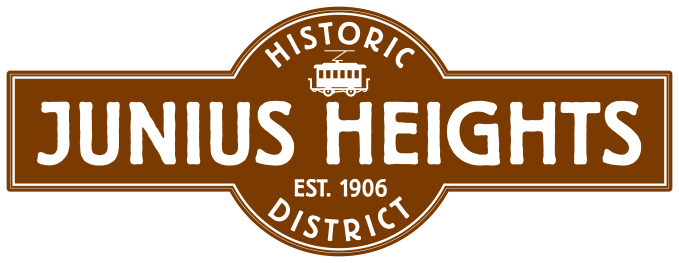Junius Heights Home Tour This Sunday
The Junius Heights 2nd Annual Home is this Sunday from 11:00-5:00. There will be seven historic and interesting homes on the tour. Tickets may be purchased at Munger Park the day of the tour. We will need lots of volunteers to run the Home Tour. If you have not been contacted by a house captain and would like to volunteer, please contact our super volunteer coordinator, Todd Smit.
All volunteers are invited to an after tour party at Bill and Marsue Williams!
Important Council Decision Affecting Inner-City Neighborhoods
On Monday, November 10, the Dallas City Council will hear testimony on form-based zoning. Basically, form-based zoning creates walk-work-play areas and protects neighborhoods. It has three critical components:
1. The residential proximity slope is preserved.
2. There is a transitional zone between high density and residential.
3. High density areas are limited to certain parts of the city.
The residential proximity slope limits the height of buildings that may be built adjacent to a residence. Developers twice have proposed construction on Beacon and Paulus that would have created buildings of inappropriate height next to our homes in Junius Heights. Nobody wants a high rise overlooking a craftsman bungalow. If inappropriate construction was allowed, Gaston Avenue and all the perimeters of Junius Heights could have heights higher than currently allowed. It would threaten the stability of Junius Heights.
A transitional zone is just what the name implies: it permits buildings that “transition†between a high-density and a residential area. The new town homes that are being built on Gaston are a good example of a transitional zone. It guarantees that there will be no jarring juxtaposition of heights and uses.
High density areas aspire to create work-live-play areas. A good example is Mockingbird Station and the West End in Dallas. They concentrate density rather than scattering it. The apartments that were built in the 1960s on Gaston are an example of scattered density. This 60s experiment continues to stress parts of our neighborhood.
The so-called Compromise Plan was supported by the Real Estate Council, developers, and the neighborhoods. Your Junius Heights Board voted to also support this plan. Council Member Ron Natinsky is offering another plan that eliminates the residential proximity slope requirement, the transitional zone, and the work-live-play density.
Please attend the council meeting to show your support for the “Compromise†Plan and the one that was passed by the Central Plan Commission on November 10.
The meeting begins at 1:00. You may park in the underground garage.
Please take a minute and e-mail the Dallas City Council. Your support and action is critical to the future of inner-city neighborhoods like Junius Heights.
Thanks!
Proposal will Devastate Dallas’ Neighborhoods
NO†to the NATINSKY PROPOSAL
The Natinsky Proposal will Devastate Dallas’ Neighborhoods
“YES†to the DEVELOPER-NEIGHBORHOOD COMPROMISE
unanimously supported by the City Council-appointed Advisory Committee and the City Plan Commission
ACTION STEPS:
1-Â Â Â E-MAIL the Dallas City Council: tom.leppert@dallascityhall.com, elba.garcia@dallascityhall.com, dwaine.caraway@dallascityhall.com, pauline.medrano@dallascityhall.com, vonciel.hill@dallascityhall.com, linda.koop@dallascityhall.com, ron.natinsky@dallascityhall.com, mitchell.rasansky@dallascityhall.com, angela.hunt@dallascityhall.com, david.neumann@dallascityhall.com, steven.salazar@dallascityhall.com, carolyn.davis@dallascityhall.com, tennell.atkins@dallascityhall.com, sheffield.kadane@dallascityhall.com, jerry.allen@dallascityhall.com
2-Â Â Â Attend the November 10 Public hearing and bring friends, family and neighbors.
Dallas City Council Chambers
6th floor, 1500 Marilla November 10th, 2008 at 1 PM
